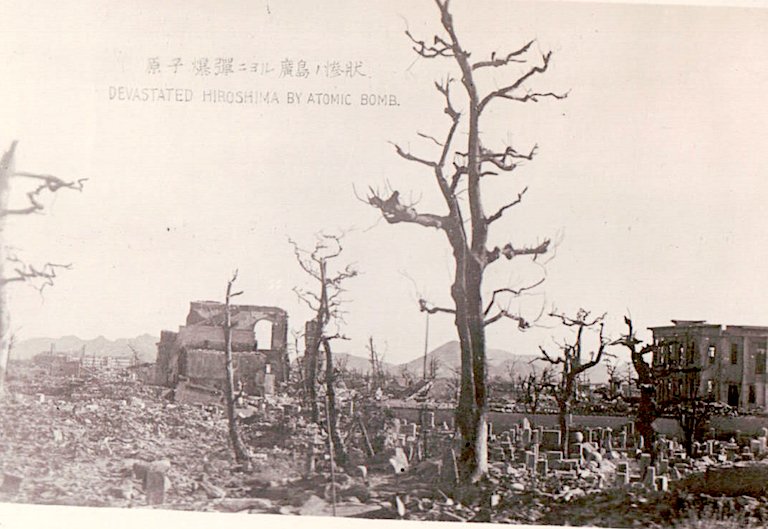Ted Deen
Ted Deen, World War II, Wills Point, Texas
Wills Point resident Ted Deen was born in Van Zandt County on February 10, 1925 and passed away July 7th, 2019. He had three brothers and one sister. Two brothers, Billy and Jack served in the military, and the oldest Dewitt. His father John Edgar Deen started the tractor business in 1933 named J.E. Deen and Sons, and later changed to Deen Implements. Last year the company again changed its name to Deen’s Kubota, located in Forney and Wills Point.
Ted graduated from High School and was drafted into the Army. “I was still in high school when Pearl Harbor was attacked, I just sat there, I knew we were going to go to war.”
Ted went to basic training in Ft. Sill Oklahoma for 13 weeks. “I went directly from boot camp to overseas. I saw very little time in the states. I was sent to the Philippine Islands and we were ready to invade Japan In August,” said Ted.
According to his grandson, Jeff Dean, “My grandfather got a one-year deferment right out of high school to go work for his brother Dewitt on the farm. He complained to me one time how hard he worked him. It sounds like to me he bought you some time granddaddy. Before you got to the Philippines they already dropped the bomb, sounds like Dewitt saved your life.” “ I never thought about it that way,” said Ted sticking to the story.
Ted Deen was on board the USS Gosper ( APA-170 ). The ship was a Haskell-class attack transport acquired by the U.S. Navy during World War II for the task of transporting troops to and from combat areas. The transport sailed for Pearl Harbor on two voyages to aid in the Navy’s great push across the Pacific, arriving there for the second time 27 February 1945.
At Pearl Harbor it was decided to convert Gosper into a much-needed casualty evacuation transport, and she was furnished with operating rooms and other hospital facilities. The ship was to take part in the historic Okinawa invasion, and departed Pearl Harbor on 18 March for Ulithi, in the western Pacific Ocean, where she arrived 31 March. In 1946 the USS Gosper was struck from the Navy List and in 1974 she was scrapped.
“I had never been out of the county, it was a whole new world for me. I took a troop train, no heat and no air conditioning. It took me thirty days to reach Pearl Harbor. I realized then, we are at war.” Ted said he was working in the galley below the ship when he went overseas as a replacement, “you can’t get any lower than that,” Ted laughs. “I didn’t like the food in the Army, but it got better as time went on. I got paid $17. A month. I had a lot of steaks to trade down there in the galley.”
“My grandfather did things and then later asked for forgiveness,” his grandson laughed telling his side of the story. “He said the food was terrible on the ship, but he said if you would just go in the kitchen, and act like you knew what you were doing, you could fix whatever you wanted to eat. He didn’t work in the galley, officially. He just went in there and started cooking things and they thought he was supposed to be there. Only officers had fresh water, but he said when you are naked, nobody knows what rank you are,” and Jeff is still laughing about that story on his grandfather.
“The best thing I liked about the Army, I got discharged. I wouldn’t take anything for the experience, but I don’t want any more of it.” Deen laughs. “I didn’t learn as much as I should have, cause all I was thinking about was going back home. I had a lot of opportunities in Japan, I regret that part.”
“They were originally going to send my grandfather to the Battle of the Bulge and they shipped him all the way to Connecticut. From there, the Army loaded them up on a train and shipped them back over to San Francisco. So he road across the entire country on a train. Never made it to the Battle of the Bulge, lucky for him.”
Ted did have an opportunity to visit Japan on a two-week R and R where he visited Hiroshima, shortly after the atomic bomb was dropped. “The roads looked like they had been picked up and dropped down. It got worse as we got closer. There was just nobody there. For three days you could not get up and down the streets. The younger Japanese would come up to us and start talking. We had Japanese waiting on us, a nice golf course, good food. That lasted about a week.” He laughs.
“When talking to my grandfather, he had no idea what an atomic bomb was,” said Jeff. “Think about that for perspective. We have grown up and seen the devastation on the History Channel. We have seen it a million times. I said grandad, what did they say when they dropped that bomb? He just said they dropped a big bomb. I went to Hiroshima, and he said, there was nothing there.”
“I just don’t know why it took an atomic bomb to shut em down,” Ted said lowering his head. “One town had a lot of temples in it, and they didn’t bomb it. They did respect them, you wouldn’t have thought it, but they did.”
“My grandfather always complimented the Japanese, Jeff told me over the phone. “They were really nice people. He was more of an occupational force when they got there. He said the people were just glad everything was over.”
Ted continued his story, “When I was in the Philippine Islands they thought I was a barber. We were loading groceries on the dock, and someone asked if there was a barber in the crowd. I said, Yeah, I’m a barber. I got a pair of scissors. I had to show off my skills. I put one of the boys on a stool and cut his hair. I got paid $2. That was a lot of money, you got 50 cents in the states. They said old Deen must have been raised to be a barber. From then on I got a bowl to cut their hair.” Ted said with a big smile.
“With his generation they just didn’t think of the war as a big deal. Their thinking was, I just gotta get this done and get back home to what I was doing. His life was unnecessarily interrupted,” Jeff said.
“When I came back to Van Zandt County I worked with my dad in the tractor business. Started out with the International Harvester Farmall tractors,” Ted said.
According to the company’s website, Deen Kubota has been servicing customers in the Northeast Texas and Dallas / Fort Worth area for over 85 years. They are a family owned and operated for four generations. Originally founded in 1933 as J.E. Deen & Sons, they began as an International Harvester dealer in downtown Wills Point, TX. Around 1951 they changed their name to Deen Implement Company as the company continued to supply and service agricultural customers in and around Van Zandt County. In 1978 they added Kubota Tractors to their product offering and changed their name to Deen Kubota beginning in 2018.
“International Harvester catered to the cotton business and when cotton prices went down the Kubota tractor had all their implements. We looked around and they were top of the line. Kubota was the best thing to ever happen to us,” said Ted proudly.
“I’ve made it to 94 thru good clean living. On my bucket list I always wanted one of those Hill Country ranches, a big one. I wanted to go to Big Bend but never had the chance to go,” he recalled reminiscing.
“Someone asked me once what it was like to be 94, I said 94 is pretty rough, but I had an awful good time getting there.” I am satisfied with my life, no do overs.”
Thank you, Ted Deen, for our interview and thank you sir for your service to our country.
NOTE: Meet other Veterans from Van Zandt County by going to the top of this page and click on MEET OUR VETERANS and click one of the (5) branches of services and the veterans last name first and click to read.
“Every Veteran has a story to tell.” Phil Smith
(ALL photos on this Facebook page are ©2019, Phil Smith and Van Zandt County Veterans Memorial. NO unauthorized use without permission) All Rights Reserved






